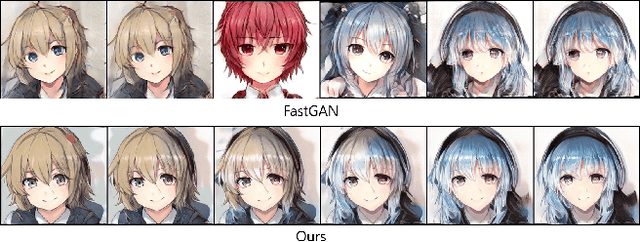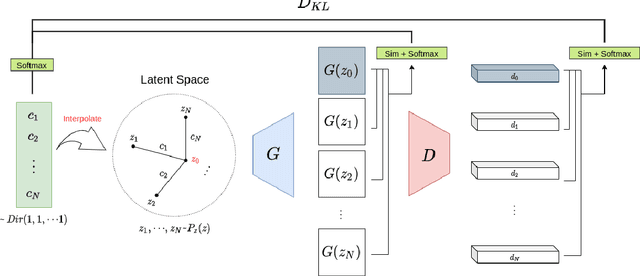Smoothing the Generative Latent Space with Mixup-based Distance Learning
Paper and Code
Nov 23, 2021



Producing diverse and realistic images with generative models such as GANs typically requires large scale training with vast amount of images. GANs trained with extremely limited data can easily overfit to few training samples and display undesirable properties like "stairlike" latent space where transitions in latent space suffer from discontinuity, occasionally yielding abrupt changes in outputs. In this work, we consider the situation where neither large scale dataset of our interest nor transferable source dataset is available, and seek to train existing generative models with minimal overfitting and mode collapse. We propose latent mixup-based distance regularization on the feature space of both a generator and the counterpart discriminator that encourages the two players to reason not only about the scarce observed data points but the relative distances in the feature space they reside. Qualitative and quantitative evaluation on diverse datasets demonstrates that our method is generally applicable to existing models to enhance both fidelity and diversity under the constraint of limited data. Code will be made public.
 Add to Chrome
Add to Chrome Add to Firefox
Add to Firefox Add to Edge
Add to Edge